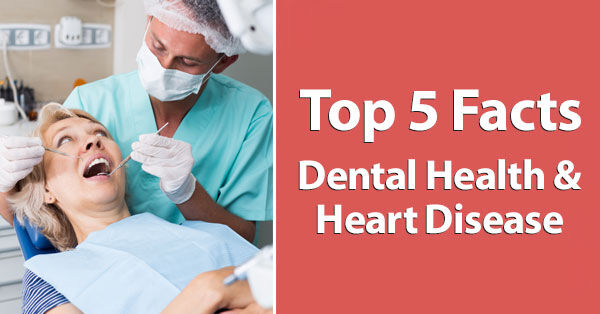Dental Health and Heart Valve Disease: Top 5 Facts Patients Should Know
Written By: Allison DeMajistre, BSN, RN, CCRN
Medical Expert: Eric Kahn, DDS, FAGD, MAGD
Reviewed By: Adam Pick, Patient Advocate, Author & Website Founder
Published: November 1, 2024
We received a fantastic patient question from Robert about dental care and heart valve disease. He asks, “Hi, There is a lot of talk about dental work and valve defects in the community. But, I didn’t find anything specific in the learning center. Can you please help patients better understand (i) antibiotics before dental procedures, (ii) medicine before dental procedures, and (iii) dental health affecting heart health.”

To help Robert and all the members of the HeartValveSurgery.com community, we were very fortunate to connect with Dr. Eric Kahn, a dentist with over 50 years of experience. You should know that Dr. Kahn is also an aortic valve replacement patient!
Here are five essential facts that heart valve patients need to know for their next trip to the dentist, according to Dr. Kahn.
Fact 1: Good Oral Hygiene Is Essential To Protect Your Heart
A healthy mouth is a prime defense against all types of heart disease, whether you had heart valve surgery or not!
 Eric Kahn, DDS, FAGD and MAGD (Dentist and Heart Valve Patient)
Eric Kahn, DDS, FAGD and MAGD (Dentist and Heart Valve Patient)
Dr. Eric Kahn shared with us, “Having a clean mouth, free of calculus, plaque control, meticulous oral hygiene and good maintenance of oral structures and prosthesis, is essential to protect your heart, joints, and brain.”
Bacteria in your teeth and gums can enter the bloodstream, travel throughout your body, and often target your heart. The bacteria also triggers inflammation, eventually leading to hardened arteries, heart attack, and stroke.
Dr. Kahn said, “You cannot have a healthy body if you do not have a healthy mouth!”
Good oral health becomes critical when you have heart valve disease or a valve replacement because bacteria seek out those areas of your body, putting you at a much higher risk for complications due to infection.
Fact 2: Patients Should See Their Dentist Before Heart Valve Surgery
Dental clearance before heart valve surgery can help eliminate existing or potential sources of infection that could travel to the surgery site and cause serious complications like infective endocarditis.
“Most of the people I examined before surgery for dental clearance had failing prosthetics, infections, abscesses, or cysts,” said Dr. Kahn. “These are potential sources of infection and inflammation, which can create a significant problem for the heart.”
The pre-surgery dental appointment usually consists of a review of your medical history and any medications you’re taking. The dentist should perform a thorough oral and dental examination and complete X-rays. Even if you don’t have teeth, you need a dental exam since infection and disease can still develop in the gums or under a prosthesis.
“Some dental problems can be delayed, while others cannot.” Dr. Khan said. If you have an infection or a problem that may cause infection in the future, it should be taken care of before heart valve surgery.
Fact 3: After Valve Replacement, You May Need An Antibiotic For Dental Work
After heart valve replacement, you’ll want to see the dentist regularly to keep your teeth and mouth healthy. Dr. Kahn said, “Taking care of your mouth and teeth is as important as maintaining healthy blood pressure, heart rate, body weight, not smoking, and a healthy diet free of junk food.”
Taking an antibiotic before all dental treatments has been questioned in recent years. However, in 2021, the American Heart Association reviewed its original recommendations for antibiotic treatment before dental procedures from 2007 and still suggests premedication for patients with prosthetic cardiac valves or material, including:
- Presence of cardiac prosthetic valve
- Transcatheter implantation of prosthetic valves
- Cardiac valve repair with devices, including annuloplasty, rings, or clips
- Left ventricular assist devices or implantable heart
- Previous, relapse, or recurrent infective endocarditis
- Unrepaired cyanotic congenital CHD, including palliative shunts and conduits
- Completely repaired congenital heart defect with prosthetic material or device, whether placed by surgery or by transcatheter, during the first six months after the procedure
- Repaired CHD with residual defects at the site of or adjacent to the site of a prosthetic patch or prosthetic device
- Surgical or transcatheter pulmonary artery valve or conduit placement such as a Melody valve and Contegra conduit
- Cardiac transplant recipients who develop cardiac valvulopathy
Depending on your condition and the dental procedure, your cardiologist and dentist can confer with each other to prescribe the appropriate type of antibiotic, how to take it, and when.
Fact 4: Discuss Anticoagulation Medications With Your Doctor Before Dental Work
Dental work is known to cause some bleeding, and if you take an anticoagulant medication, you’re probably wondering whether you should stop taking it before your dental appointment.
When and if to stop taking your prescribed blood thinner should be taken up with your cardiologist and your dentist. The guidelines are complicated and can depend on the type of anticoagulation you’re taking. If you take warfarin, you may need blood work to know your INR before having dental work.
The type of dental procedure also matters since some treatments have a higher risk of bleeding than others. Generally, you can rest a little easier knowing that many studies have proven severe bleeding from most dental procedures is uncommon.
Ultimately, it is a question you should ask your cardiologist and dentist since each patient is different, and the risk of bleeding from a dental procedure needs to be weighed against the risk of a blood clot forming because of a medication change.
Remember, only stop or change your medications with the advice of your physician or dentist!
Fact 5: Your Best Defense Against An Infected Valve Is Good Oral Health
Infective endocarditis can affect anyone, but people with heart valve disease or an artificial valve are at higher risk. Practicing meticulous oral hygiene is one of the most effective ways to prevent endocarditis.
“New heart valves are fragile, and severe dental infections can be difficult to treat,” said Dr. Kahn.
He suggests using tools like a high-quality electric toothbrush and a water pik when caring for your teeth and gums. You and your dentist can work together to maintain excellent heart and oral health.
Don’t Forget! The Key Takeaways for Dental Health!
To summarize Dr. Kahn’s points above, here are the key takeways:
- Good heart health depends on meticulous oral hygiene.
- Always see your dentist before heart valve surgery.
- Your cardiologist and dentist will decide what antibiotic is best before dental procedures.
- Ask your dentist and cardiologist about anticoagulation medication.
- Don’t stop or change any medication without talking to your doctor!
- Good oral health is your best defense against an infected valve.
Many Thanks Robert and Dr. Kahn!
On behalf of our patient community, many thanks to Robert for his question. And, a special thanks goes out to Dr. Kahn for taking the time to share his clinical experiences and research with our community.
Related Links:
- Doctor Q&A: How to Avoid Bacterial Endocarditis at the Dentist?
- Bacterial Endocarditis: What Should Heart Valve Patients Know?
Keep on tickin!
Adam




